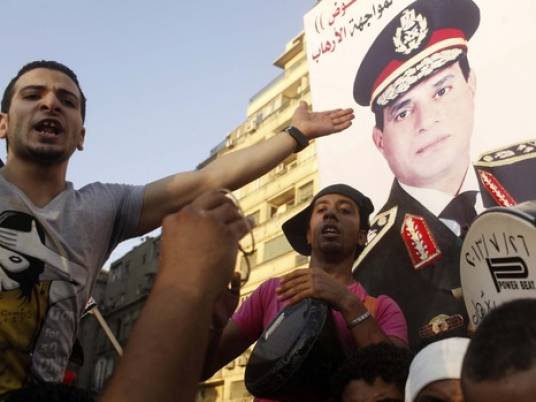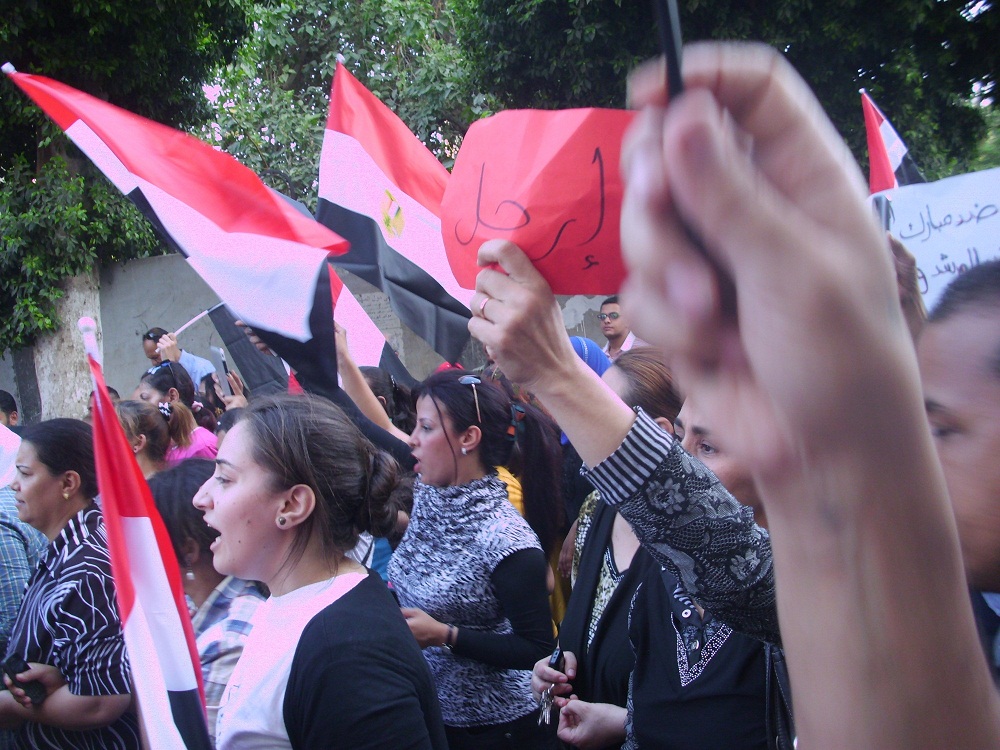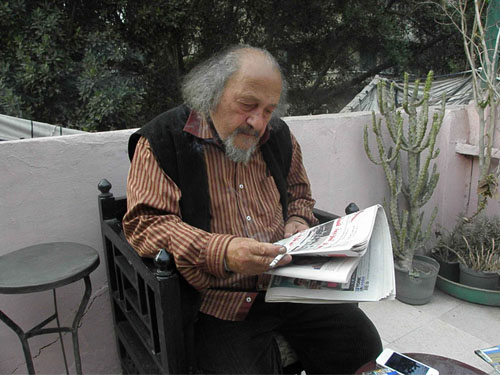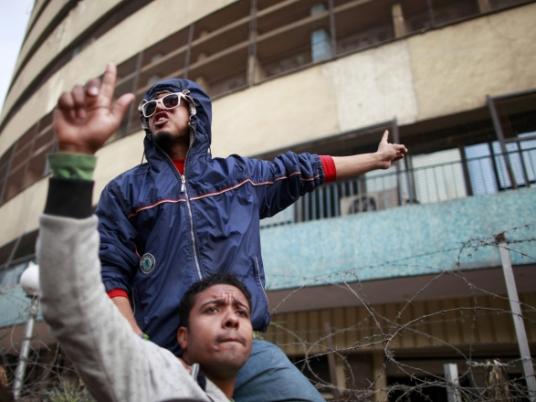As the gap widens between the revolutionaries and their military rulers, a remote voice from across the Atlantic is increasingly being heard in Egypt.
Only a few hours after hearing a speech by Mohsen al-Fangary, deputy defense minister and spokesperson of the Supreme Council of the Armed Forces (SCAF), in which he refused to make any concessions to the demands of protesters occupying Tahrir Square, Brazilian political cartoonist Carlos Latuff had his say.
Latuff, who’s now a familiar name around demonstrators’ circles in Cairo. Alexandria and Suez, animated the speech in a cartoon, dressing up a mouse in a military uniform shouting, “Roar!” at the protesters.
The production of Latuff’s newest cartoon was quick, reflecting the urgency of a man who is deeply concerned about the political unrest in Egypt.
Latuff’s interest in Egyptian politics began two days before the revolution even started, when he was asked by some Egyptian activists on Twitter to draw a few cartoons about Egypt, he told Al-Masry Al-Youm in an email.
What came out of this unlikely correspondence was a series entitled, “First Tunisia, Then Egypt.”
One of the cartoons in the series shows former President Hosni Mubarak receiving a shoe marked “25 January,” which was prophetically drawn before the so-named revolution had even begun.
As successful as the series was, however, it wasn’t Latuff’s first contact with the Egyptian politics.
“I got closer to Egyptian politics through the revolution. However, I've been always familiar with the Mubarak regime, because I'm a supporter of the Palestinian cause and was critical of Mubarak's role in the siege of Gaza,” he told Al-Masry Al-Youm.
For the last few months, the 42-year-old cartoonist has been incredibly active in both drawing cartoons criticizing Egypt’s military rulers and spreading them through Twitter.
One of the funniest cartoons Latuff produced was entitled “Solidarity with Mubarak, Who's Facing Difficult Times in Sharm el-Sheikh.” The cartoon, which received 13,342 hits in just 11 hours on the picture-hosting site, Twitpic, depicts Mubarak relaxing on a float in a swimming pool at Sharm el-Sheikh Hospital. The absurdity of the image is only increased by the presence of a man wearing a military uniform reading “SCAF” and serving him a cocktail.
Another cartoon, entitled “PM Essam Sharaf and the Three SCAF Monkeys,” depicts the same SCAF figure from the previous cartoon attempting to prevent Sharaf from speaking, listening or seeing.
Latuff says that his defiant views about the SCAF are deeply rooted in his own political experience.
“Let's just say that we Brazilians have a good knowledge of living under a military dictatorship,” he quips. “We lived for 20 years under a military junta. There was lots of torture, killings and disappearances. The role of generals is not to rule a nation.”
To Latuff, the same rule should apply to Egypt.
“What happened and is still happening in Egypt is that the people were tricked into believing that the overthrow of Mubarak would bring democracy to the country. But what we actually see is that while Mubarak is out of power, the machine he created is alive and kicking – and it's called the Supreme Council of the Armed Forces.”
Latuff’s interest in the Middle East also extends to following the region’s indigenous political cartoonists. He praises Palestinian political cartoonist Emad Hajjaj, calling him “one of the best artists I know in Middle East” and also mentions another well-known Palestinian political cartoonist, Naji al-Ali, whom he considers “an inspiration to all cartoonists with a conscience.”
Latuff’s cartoons have now become entrenched in the revolutionary culture; many of them are now distributed in Tahrir Square. Famous journalist Yosri Fouda even featured his cartoon, “Suez Warriors,” on his television program.
The cartoonist is proud that protesters have used and continue to use his cartoons in their demonstrations. He recently tweeted, “I can't take credit for all 'toons I made about #Egypt. YOU Egyptians give me ideas and inspiration. Shukran. #Jan25”.
Having never been to Egypt, Latuff is eager to visit the country. But he is not holding his breath.
“I think if I set foot in Cairo's airport today, the SCAF will probably arrest me.”




